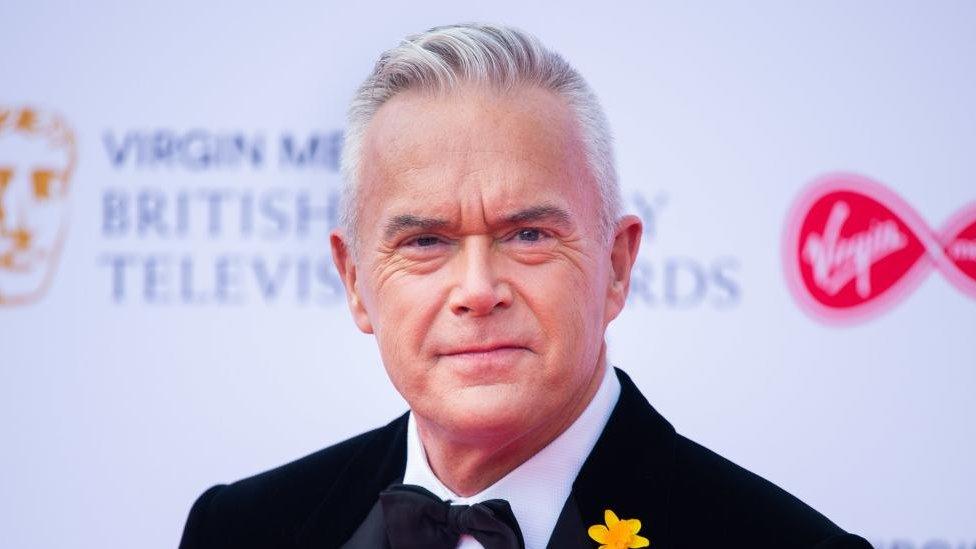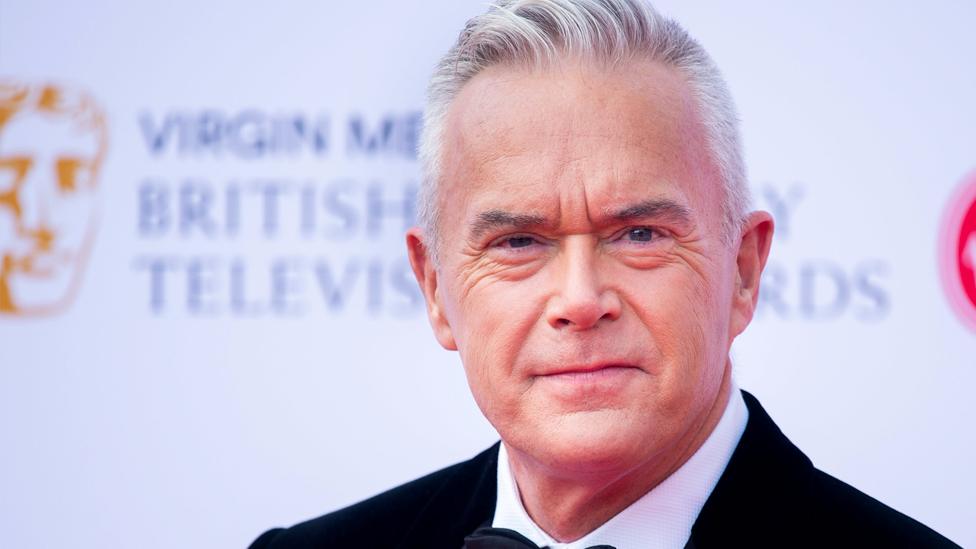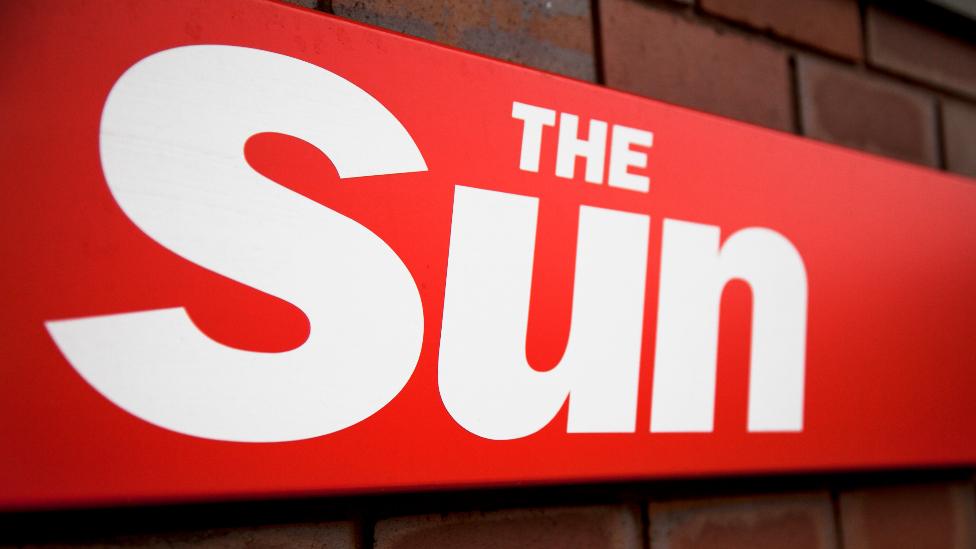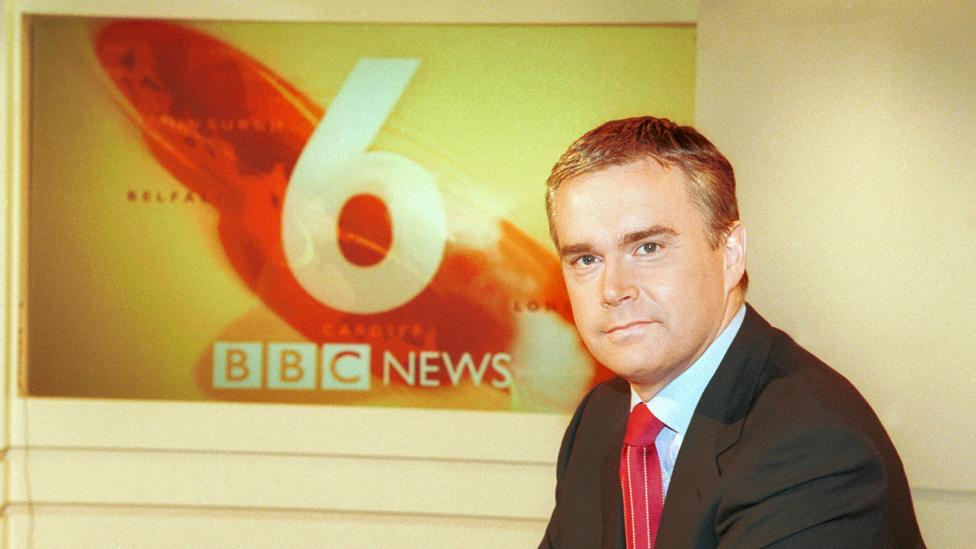BBC resumes Huw Edwards inquiry as no criminality found by police
- Published

The BBC is resuming its investigation into Huw Edwards, after police found no evidence of criminal behaviour over claims he paid a young person for explicit images.
His wife said he was in hospital with "serious mental health issues" as she named him as the presenter at the centre of the allegations.
The corporation said it would be mindful of its duty of care.
Some BBC staff also made claims about inappropriate messages by Edwards.
The corporation's internal fact-finding investigation was paused at the Metropolitan Police's request while it carried out its own enquiries.
On the resumption of the internal probe, a spokesperson for the BBC said: "We will now move forward with that work, ensuring due process and a thorough assessment of the facts."
Director general Tim Davie also said that he had asked for a separate review into whether the BBC's complaints protocols and procedures were appropriate, after it was revealed the corporation contacted the family who made the allegations about Edwards just twice - despite deeming them "very serious".
The initial allegations, first reported by the Sun online on Friday evening, were that the news presenter paid a young person for sexually explicit photos, beginning when they were 17.
In later versions of the story, the Sun changed the wording of this allegation to "it is understood contact between the two started when the youngster was 17".
The paper had quoted the person's mother as saying her child, now 20, had used the money that had been paid for the photos to fund a crack cocaine habit, and she was worried they could "wind up dead".
A lawyer for the young person has since said the accusations were "rubbish" but the family are standing by the account.
A statement issued by the Met on Wednesday said police "determined there is no information to indicate that a criminal offence has been committed".
Meanwhile the BBC reported on Wednesday that Edwards also faced claims about inappropriate behaviour towards some junior staff members.
Two current BBC workers and one former member of staff said they had been sent messages that made them feel uncomfortable.
An employee at the corporation told BBC News they received "suggestive" messages from Edwards. BBC News has seen the messages, which refer to the staff member's appearance and were sent this year.
One said they felt it was an abuse of power by someone very senior in the organisation.
Speaking to the BBC's Newsnight programme, the workers and former employee spoke of a reluctance among junior staff to complain to managers about the conduct of high-profile colleagues in case it adversely affected their careers.
The BBC said: "We always treat the concerns of staff with care, and would urge anyone to speak to us if they have any concerns. We have clear processes for making complaints."
In a separate BBC News investigation published on Tuesday, a young person who did not work at the BBC said they had felt "threatened" by messages sent by Huw Edwards.
"This remains a very complex set of circumstances," director general Tim Davie told BBC staff in an internal email sent on Wednesday evening, "Our aim must be to navigate through this with care and consideration."
Former controller of Radio 4, Mark Damazer highlighted the importance of the BBC exercising a proper duty of care.
Speaking to Radio 4's Today programme, he said "it is extremely important that Tim [Davie] and the BBC doesn't feel that it has to be rushed by other people's agendas to come to measured, appropriate and evidenced conclusions."
Edwards was identified by his wife on Wednesday as the BBC presenter at the centre of allegations, after media outlets - including BBC News - initially took the decision not to name the him due to privacy concerns.
Vicky Flind said she was issuing a statement on her husband's behalf after days of speculation, saying he was being treated in hospital for "serious mental health issues".
"I am doing this primarily out of concern for his mental well-being and to protect our children," her statement read.

Sign up for our morning newsletter and get BBC News in your inbox.

Related topics
- Published13 July 2023

- Published12 July 2023

- Published22 April 2024
